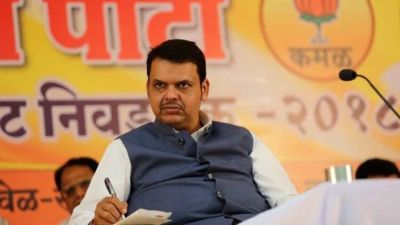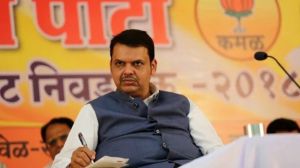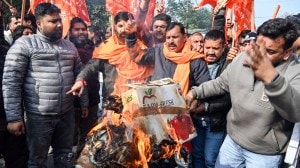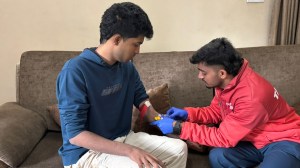Iraq war, now playing in Yangon
I thought I had left Iraq far behind when I arrived in Yangon. But that was not the case. The reverberations of Iraq are being felt everywhe...

I thought I had left Iraq far behind when I arrived in Yangon. But that was not the case. The reverberations of Iraq are being felt everywhere. Here in Yangon, Iraq has impacted decisively on the future of Aung San Suu Kyi, indeed of Myanmar. The US, once the main promoter of freedom, is today painted in such lurid colours, that its capacity to force positive change must be minimal.
With malicious glee, the regime here keeps the images of American misdemeanors in Iraq in the public eye. The English language daily, The New Light of Myanmar in yesterday8217;s edition, carries a full page photo feature focusing on orphaned children, maimed women, bombed houses, incinerated bodies 8212; all under a banner headline 8216;Images of Iraq8217;. Today, the 16 page tabloid has 11 pages dedicated to dismal news from Iraq.
The other pressure group for democracy, the European Union, is incapacitated by the fact that the lead in this group has been taken by Britain which is seen as a full partner in the Iraqi debacle.
Myanmar8217;s march to freedom is peculiarly meshed with India8217;s. Subhash Chandra Bose shifted the headquarters of the Indian National Army to Yangon. It was from the grave of the exiled Moghul King Bahadur Shah Zafar that 8216;8216;Subhash Babu8217;8217; gave the 8216;8216;Dilli chalo8217;8217; call.
Myanmar8217;s leaders like Gen Aung San Su Kyi8217;s father came into contact with Bose as well as Nehru. In 1948 Gen Aung San was assassinated and U Nu led his country into Bandung and the Non Aligned meet and the first elections in 1958. But in 1962 Gen Ne Win staged a military coup and closed the country from the world for 25 years on the North Korean model.
Impulses for change came, first, from China when Deng Xiao Peng launched the four modernisations in 1978. By the late 80s glasnost and perestroika combined with Reagan8217;s offensive altered Moscow to the point that it was packing its bags in Afghanistan. A surge for freedom gathered momentum in India8217;s neighbourhood. Nepal held elections.
Younger army leaders set aside Ne Win in 1988. This was also the year when Aung San Suu Kyi returned to Myanmar from Cambridge. The youth rallied around the daughter of one of Myanmar8217;s heroes. In the 1990 general elections, Aung San Suu Kyi8217;s National League for Democracy won 80 per cent of the seats.
Began the backtracking. The election was not to a parliament, Gen Khin Nyunt argued. There cannot be a parliament without a constitution. The elections, therefore, were to a constituent assembly, the regime said.
The country was opening up, very slowly. The west, having won the Cold War, had the legitimacy to press for change. Around this time, even New Delhi, under V.P. Singh as PM, threw its weight behind the pro democracy movement.
It goes to the credit of J.N. Dixit who, as P.V. Narasimha Rao8217;s foreign secretary, steadied India8217;s policy towards Myanmar on a non intrusive basis. New Delhi8217;s relations with China were on the mend and India, having multiple interests in Myanmar, would do business with the rulers in Yangon. Call it ambivalence or commitment, New Delhi conferred the Nehru award on Su Kyi in 1996 causing a stir in Yangon. The international community, ASEAN now in the forefront, kept up the pressure for openness and for Su Kyi8217;s release.
In 1993 the constituent assembly National Convention met but ended inconclusively in 1996 because the NLD walked out. There was no debate, just a unilateral approval of key clauses, the NLD complained. Consistent with two steps forward and one back, Myanmar joined ASEAN in 1997. Now, it is in the queue to be ASEAN chairman in 2006.
So, in August 2003 a roadmap to democracy was set out. The first step in this roadmap is the drafting of the new constitution. A National Convention has been in session outside Yangon since May.
Clearly, the NLD, which established its popularity in 1990, should be part of the Convention. The regime welcomes the NLD but not its conditions. Most important is that Aung San Suu Kyi is released. Ever since she returned from the UK 15 years ago, she has been under detention for over 12 years.
Until last year the impact of sanctions combined with western pressure was working. The regime too needed to gauge if Su Kyi8217;s charisma had faded since 1990. So, in May 2003, she was released. Mass upsurge caused the regime to lose nerve. She was again placed under house arrest.
Now the National Convention is going ahead with the drafting of the constitution. Of the 107 participants, only 26 are victors of the 1990 poll. The NLD8217;s argument that the constitution is an arbitrary draft will be cleverly circumvented: the draft will be ratified by a referendum. And that process will see the regime through to the ASEAN chairmanship in 2006.
A pity the US and UK have, in the eyes of Yangon8217;s power elite, compromised their moral right in Baghdad to press for Su Kyi8217;s release in Yangon. But the new regime in New Delhi has spoken up for the remarkable freedom fighter again. In fact, Natwar Singh may well have raised the issue with his Myanmar counterpart during their recent meeting in Beijing.
- 01
- 02
- 03
- 04
- 05































